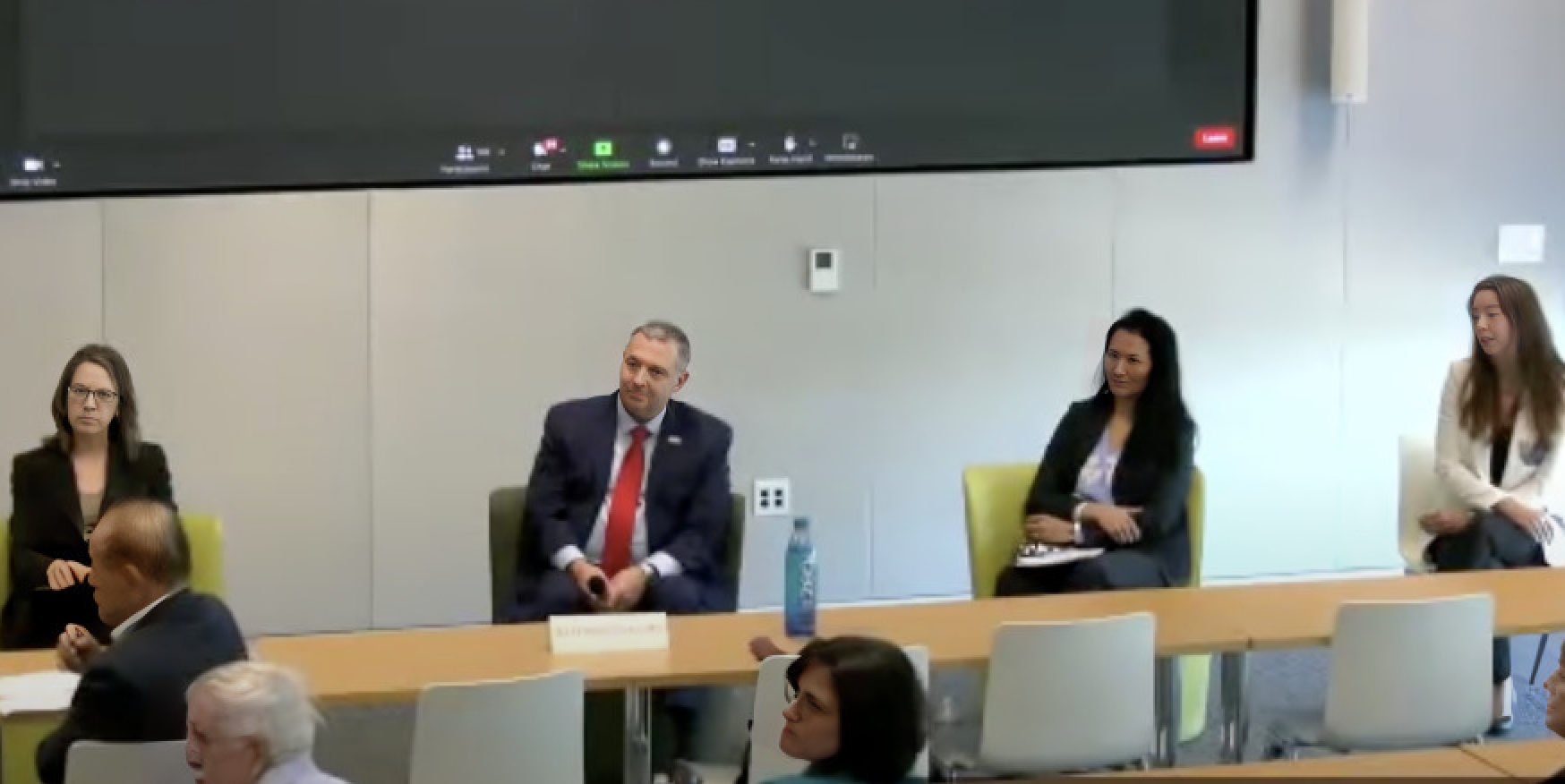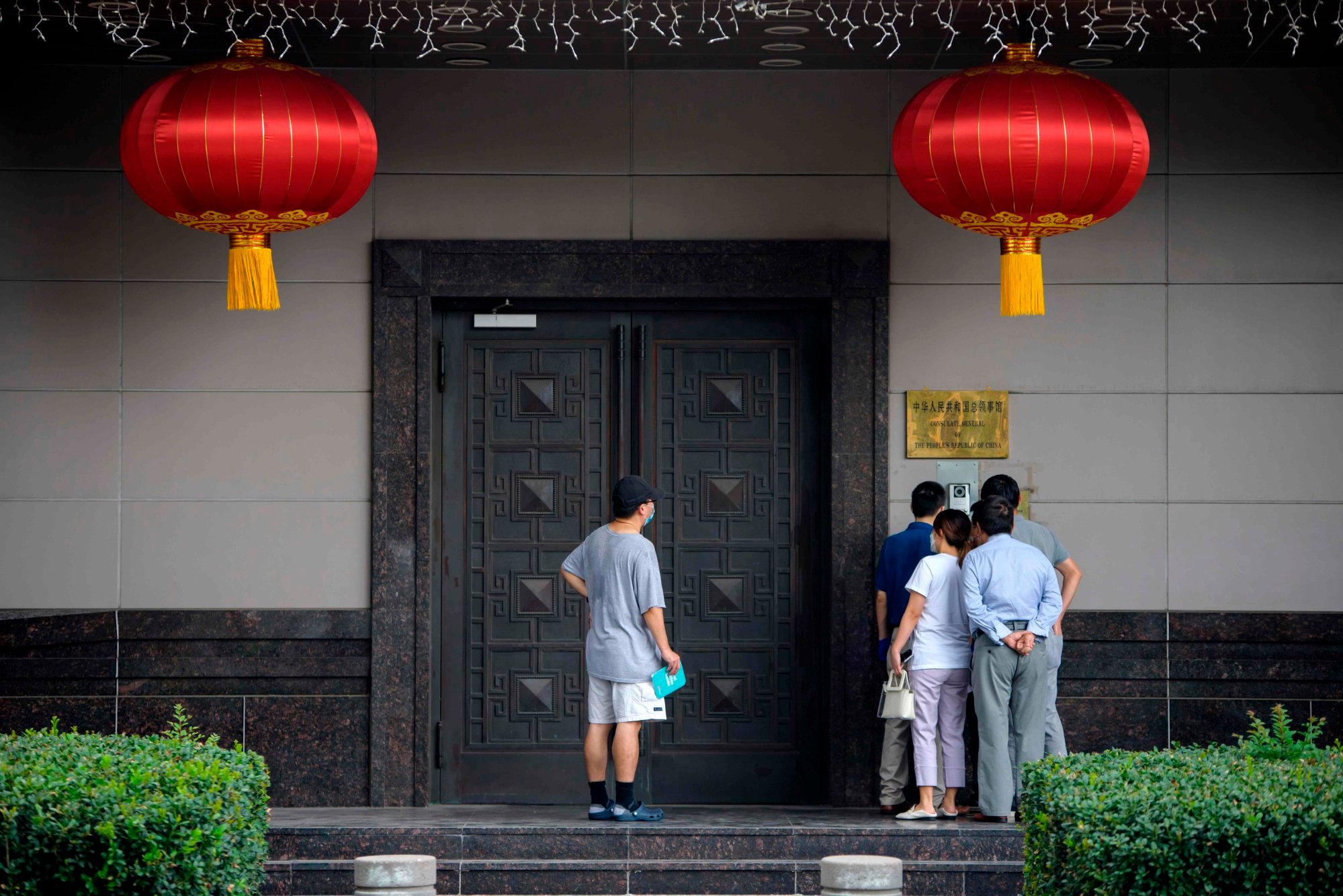Amid criticism of the FBI’s role in the now-disbanded China Initiative and its lingering repercussions for individuals of Chinese ethnicity or with ties to China, the FBI is attempting an outreach effort with a clear message: we acknowledge past missteps and seek the community’s assistance in countering the Chinese Communist Party and its government.
“We really need to spend time listening to you and your concerns, and we’re not always right, and we can always be better. We need open lines of communication,” said Murphy, who moved to Chinese counter-intelligence in 2010 and later served on the National Security Council.
Launched in 2018 under then US president Donald Trump, the China initiative targeted individuals suspected of transferring sensitive technologies to China. Hundreds of scholars with Chinese heritage were investigated by the FBI, but ultimately there were no espionage convictions. The US Department of Justice terminated the programme in 2022, under President Joe Biden, after allegations of racial profiling and prejudice.
Though the academic and Asian-American communities hailed the end of the China Initiative, the scrutiny of those with Chinese descent or any China ties persists. According to the Chinese embassy in Washington, since July 2021, at least 70 students holding valid visas have encountered prolonged interrogations and entry denials into the US. Among them are students and researchers from Harvard, Yale and Johns Hopkins, many of whom were returning to the US after visiting their families. Some were coerced into divulging passwords or surrendering their electronic devices.
Community leaders and advocacy groups that participated in the talks at Rice welcomed Murphy’s remarks, describing the gathering as a “first step” toward promoting transparency and preventing counter-intelligence policies and practices from perpetuating prejudice.
“It is very unusual that the FBI leadership is willing to attend a Zoom panel discussion that the whole country can watch anonymously,” said the advocacy group APA Justice, adding that the event was “a big step forward” for Murphy, who was “much more relaxed and not reading from a script”.
Gordon Quan, a former city council member in Houston and one of the community leader speakers at the event, said he hoped that Murphy’s “message comes through to the field staff”.

“I just want to reinforce, that should be the attitude of the agency,” he said, adding that some past comments made FBI Director Christopher Wray about nearly half of all cyberespionage cases being related to China had “disturbed” him.
“We believe in national security as well. But by the same token, don’t paint all Chinese with the same brush that you know China is a threat. And if you’re Chinese, you’re a possible threat,” Quan said.
But Neal Lane of the Baker Institute, a think tank, said in an email that there was “no quick fix” to the damage done by the China Initiative, which he said had hurt the careers of scientists and hurt families.
“It will take an iterative process and dialogues like this recent one to make progress. Such events should be held all across the country,” said Lane, who participated in Thursday’s event.
The choice of Houston as the dialogue venue was also significant. Home to one of the largest Asian-American populations in the US, the city has been a focal point during some of the most intense moments in US-China tensions.
In 2020, the Trump administration ordered the Chinese consulate in Houston closed to “protect American intellectual property”. Senator Marco Rubio, a Florida Republican, had called it a “massive spy centre”. The consulate remains closed.

During the livestream, Kelly Choi, a supervisory special agent at the FBI’s Houston field office, urged Asian-Americans to collaborate with law enforcement agencies, whether reporting crimes to the FBI or local and state authorities. She recalled how after the US closed the Houston consulate, some Asian-Americans were not comfortable talking to the agents conducting routine interviews.
She said that in the past several years, the bureau had been working with community leaders to improve communication, and that the public forum was one of the suggestions that had come from that effort.
Citing potential “misplaced trust”, Choi emphasised the agency’s commitment to improving local engagement, saying the FBI sought to foster confidence through outreach.
Douglas Williams, a special agent in charge of the FBI’s Houston field office, said the FBI wanted Asian-Americans to trust the FBI “when something does happen in this community … that you feel comfortable calling us and that we can investigate it”.
Murphy conveyed the bureau’s commitment to understanding the Asian-American community better and to exercising greater discernment in case selection, aiming for a more respectful and nuanced approach.
“I’m very cognisant of ensuring that we are opening our investigations on predicated facts or allegations of either things that threaten national security or federal criminal violations,” she said.
Murphy said agents were learning about the “correct way” to talk about the Asian-American community, clarifying that any mentions of China are directed specifically at the Chinese government and the Chinese Communist Party, not the Chinese people.
Quan said making that distinction was important in “humanising” the Asian-American community.
Last year, a national survey by the Asian American Foundation found that nearly 80 per cent of Asian-American respondents did not feel they fully belonged or were accepted, and nearly one-third of Americans saw Asian-Americans as more loyal to their perceived country of origin.
As for the next steps, Quan said simple acts like sharing meals, attending community events and personally connecting with agents could facilitate familiarity and help individuals identify whom to contact if they encounter something they consider questionable.
“We will take it from our side to do that and to have them in attendance,” he said, underscoring that the event in Houston was only a starting point.


